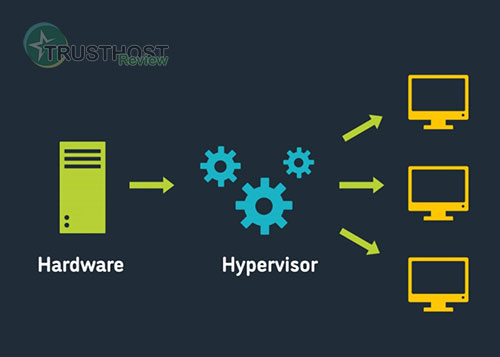Servers: The Backbone of the Internet
We interact with servers constantly without even realizing it. Every time you browse the web, check your email, or stream a video, you're connecting to a server. But what exactly is a server, and how does it work?
What is a Server?
A server, in its simplest form, is a computer system designed to provide resources, such as web pages, files, and applications, to other computers known as clients. These resources are delivered over a network, which can be the internet, a local area network (LAN), or even a direct connection.

Think of a server as a powerful central hub that stores and manages data and applications. When you request information from a website, your computer (the client) sends a request to the server where the website is hosted. The server then processes the request, retrieves the necessary data, and sends it back to your computer.
How Servers Work:
Servers rely on a client-server model, where multiple clients can connect to a single server simultaneously. This model enables efficient resource sharing and distribution.
Here's a simplified breakdown of the process:
- Client Request: Your computer sends a request to the server (e.g., loading a webpage).
- Server Processing: The server receives the request and processes it.
- Data Retrieval: The server retrieves the requested data or resources.
- Response Transmission: The server sends the requested data back to the client.
- Client Display: Your computer receives the data and displays it (e.g., the webpage loads).
Types of Servers:
Servers come in various types, each specialized for specific tasks:
- Web Servers: Host websites and deliver web pages to users.
- File Servers: Store and manage files, allowing users to access and share them.
- Application Servers: Host and run applications, providing processing power and resources.
- Database Servers: Manage databases, storing and retrieving data efficiently.
- Mail Servers: Handle email transmission and storage.
Importance of Servers:
Servers are crucial for:
- Website Hosting: They make websites accessible to users worldwide.
- Data Storage and Management: They provide secure and reliable storage for large amounts of data.
- Application Deployment: They host and run applications, enabling businesses to operate efficiently.
- Communication and Collaboration: They facilitate communication through email, messaging, and online collaboration tools.
Conclusion:
Servers are the unsung heroes of the digital world, working tirelessly behind the scenes to deliver the information and services we rely on daily. Understanding the role of servers is essential for anyone who uses the internet or interacts with online platforms.
















